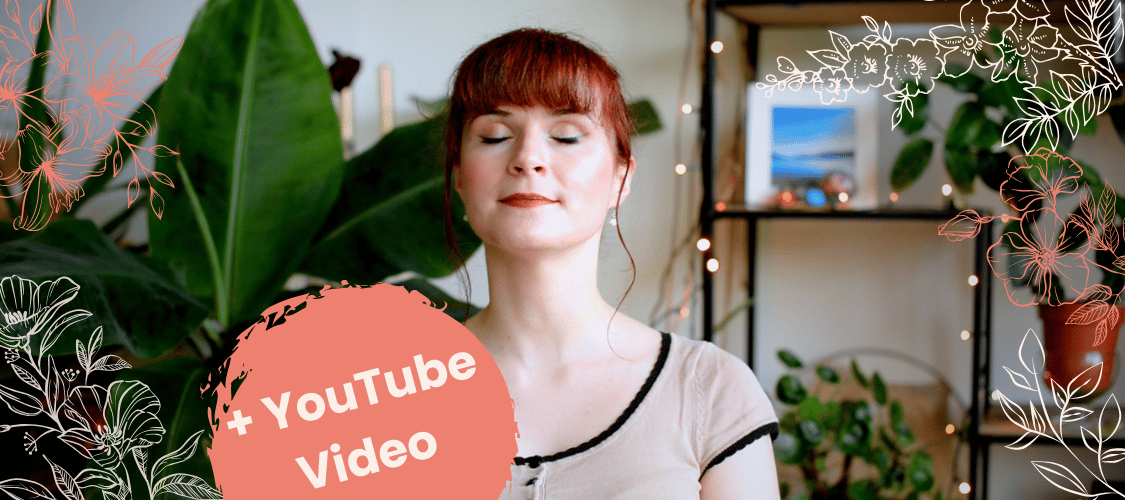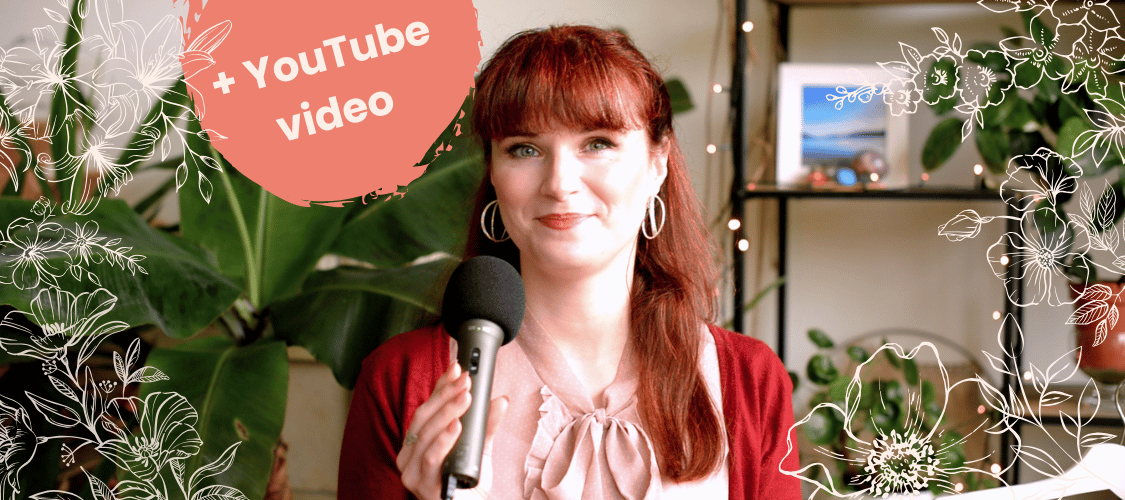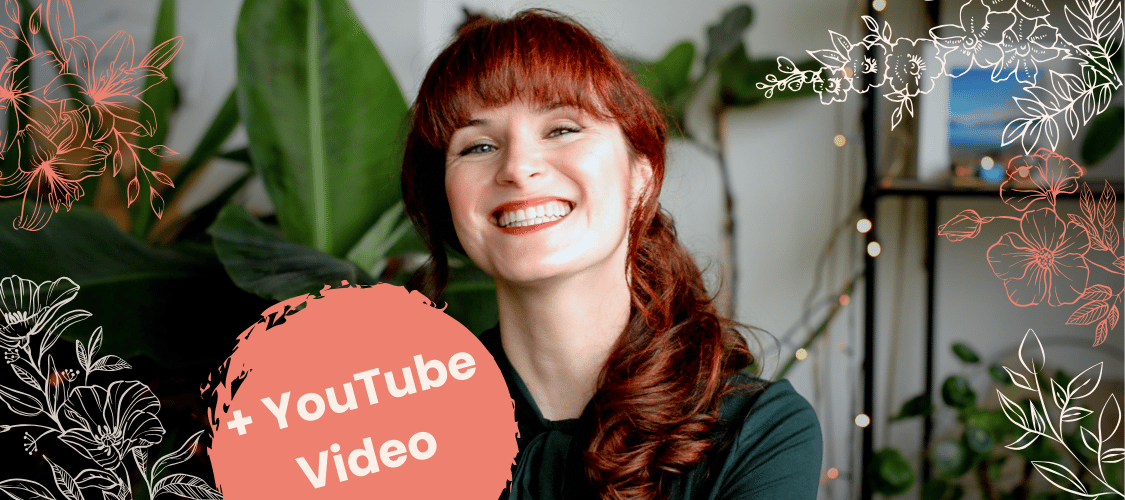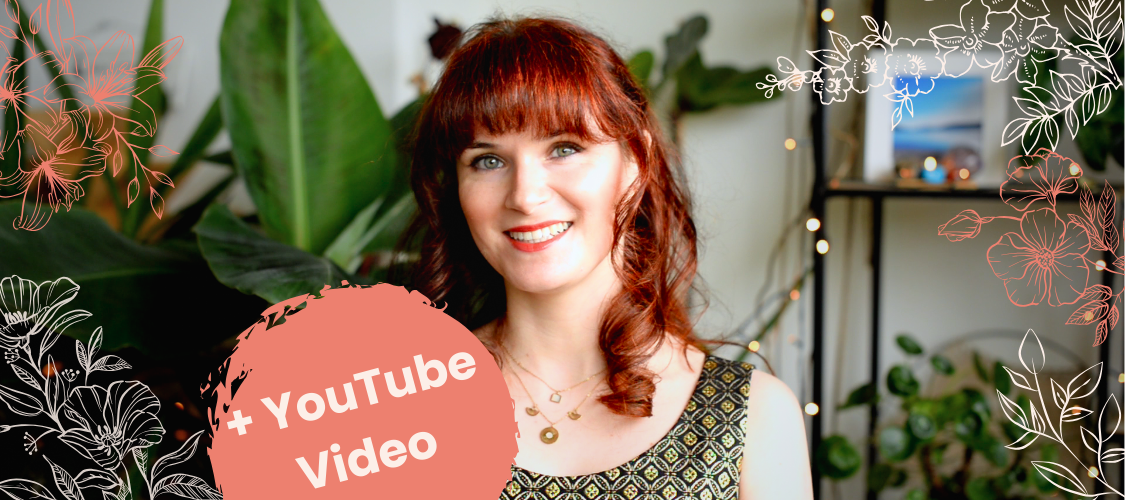The most magnetic people we meet in life are those who seem to not care about what others do. They seem like rocks, unshaken, minding their own business, in control, nonreactive – simply immune. This is the type of energy a high value, feminine woman is admired for, and we’ll delve into the ways how to emotionally detach and enter that unbothered girl era with the main character energy!
What Nobody Teaches Us
In childhood, our emotional education is not always the best. If you’re among the lucky few, your parents stayed together, solving problems together and communicating with each other. We learn attachment and how to love from our parents.
Having a complete family is a privilege in this world we don’t often recognize.
In society, we believe that having that special someone is finally going to make us happy. We overly depend on other people to make our lives whole instead of taking personal responsibility.
I am here to show you that we can do better and create our own happiness and love internally. We can build the life we want and work on our own happiness without overly depending on other people and only letting them add colour to our full and complete black and white picture that our life already is.
You’re always a full picture, just by yourself.
The Law of Detachment
The Law of Detachment is a concept rooted in Eastern philosophies, mindfulness, and modern self-help. It suggests that, to achieve peace and happiness, we should let go of our attachment to specific outcomes, people, or material desires. Practising detachment does not mean indifference or lack of interest, but rather a mindset of acceptance, flexibility, and trust.
The Law of Detachment encourages us to release emotional attachment to specific outcomes, allowing us to maintain a sense of inner peace and resilience.
It involves letting go of excessive control, understanding that not everything is within our power to manipulate or predict.
Engage in mindfulness meditation and present-moment awareness to observe thoughts and emotions without excessive attachment.
Shift the focus from obsessing over outcomes to concentrating on the effort and actions put forth. Do your best without being overly fixated on the end result.
What is Detachment
In short, detachment is when you stop depending on other people for your happiness. It involves removing yourself from situations where you’re not welcome and your boundaries are not respected, instead of crying and begging the other person to see it. People know exactly what they’re doing, and it’s up to you to set and maintain your standards.
You still want to attach to your family, and partner, but you do it to enrich your life and build healthy relationships, not because without it, you’re nothing. Your mood doesn’t flip depending on if they show up for you like you thought they would at the moment.
A detached person prioritises herself, fulfils her own needs, and is securely attached. She has an abundance mindset – meaning, she knows there are plenty of people out there who would love to have her in their lives, so she doesn’t waste time trying to convince people about this fact.
You have a set of boundaries, and the behaviour of others is not an attack on you but a message from them about who they really are and how much you mean to them. You remove yourself from situations that do not feel good to you because you know your worth. You are selective.
It’s not that you’re a cold B. You simply have your emotions in check, regulating yourself emotionally by curiously asking questions about why you feel that way if a person triggers something in you. By agreeing to be treated a certain way, you signal to others your value. And they will push and test you to see how high it is.
We project our self-perceived value to the world!
Changing Codependency into Interdependence
As a person who comes from an anxious attachment, I now see that we often depend on others way too much, causing pressure on them to make us happy and fulfil every single need of ours. This is not how to emotionally detach.
While there are certain needs we might require from a relationship, like safety, security, appreciation, affection, respect or emotional support, oftentimes we confuse needs and wants, demanding too much from people.
We are all interdependent, but it doesn’t mean you have to depend on others to fulfil your every need. Instead, embrace the fact we are all interdependent and it’s a beautiful thing but alone you can also achieve epic things.
Here are some differences between codependency and interdependency:
- Imbalanced reliance on one another VS contributing to the relationship without losing your individuality
- Lack of boundaries VS clear and respected boundaries
- Low self-esteem VS Strong sense of self-esteem
- Deriving self-worth from your role in relationships VS high self-perceived worth and value
- Fear of abandonment VS not being solely defined by a relationship
- Controlling and fixing other person’s problems before your own VS exchange of support without sacrificing your own needs
- Fear of communicating the needs VS openly expressing the needs, desires and feelings in full understanding and empathy
Let’s Change That!
Detachment is a skill and can be learned. It only requires self-awareness and consistency. Here are my 5 tips on how to emotionally detach.
Work on Your Emotional Control
- Learn to control and regulate your emotions. It will help you in all areas of life. You can start by meditating and try to observe your triggers, understanding where they come from. Be understanding and curious towards yourself; don’t judge yourself for anything. Sometimes it’s okay to say “I need some time to process what I feel about this”. You don’t have to react to things immediately. When you feel anxious, recognise that it’s just accumulated energy and go to release it with exercise.
- We have the right to feel every emotion, but we do not have the right to react in a way we feel like or put blame on others. As a detached person, take full responsibility for what you feel and deal with it by reflecting on it. Acknowledge that even negative emotions are a loving message from your brain, and learn to love these parts of yourself also. Love the whole self.
- I wrote a free PDF called “30 Days to Emotional Control” that you can download and start your emotional control journey. Insert your email and download!

Understanding And Fixing Your Attachment Style
- It’s crucial to address your attachment style. If you’re an insecurely attached person, read the book “Attached” and start paying attention to your triggers. To become security attached, start acting like a securely attached person would. Acknowledge your negative emotions and let them go to avoid negative spirals of emotions.
- Remember that it’s a process, and there will be setbacks. When you’re single, you don’t get the same set of triggers as you would in a relationship, so the real, difficult work starts when you enter a new relationship. It will be a test and also an opportunity to continue your learning and improve every day.
Attached by Amir Levine
Affiliate paid links:
Build Your Own Dream Life
- Focus on your own personal growth and level up your life. There’s nothing better than an intelligent feminine woman on a mission. Cultivate a strong sense of self and invest time and energy in your personal growth. Pursue hobbies, interests, and goals that are independent of your relationships. When you have a well-developed sense of self, you are less likely to seek external validation or fulfilment solely from others.
- How to emotionally detach? Detach from personal identification with success or failure. Understand that your worth is not solely determined by external achievements.
- Focus on your efforts and the actions you put forth. Do your best without being overly fixated on the end result and outcomes you so desperately want to achieve. Release the control.
Prioritise Yourself
- You are the most important person in your life. Instead of helping your man and fixing his problems for him, focus on addressing your own issues and problems. Be there for yourself always, become your own best friend and prioritise your own needs, self care and self love. Act as you’re the main character of your film – because you are. Don’t overanalyse how others behave around you, especially men, and remember that mixed signals are a no. Mirror the behaviour of others to avoid overinvesting.
Practise Self-Awareness
- As mentioned above, start by observing your thoughts and emotions without judgement. It’s a good idea to start meditating and journaling because that way you can express your feelings, identify triggers, and revisit them later with a fresh, less emotional perspective to learn something new. You’ll notice patterns in your behaviour and reactions to events and actions of others. It’s a huge part of learning how to emotionally detach – not reacting to events immediately, but pondering about them in solitude, engaging in self-reflection, and understanding yourself.
Free Meditations
Visit my YouTube Channel to get access to all my free meditations
- Cultivate a sense of gratitude for the present moment and the journey you’re on. Appreciate the experiences, both positive and challenging, that contribute to personal growth. Celebrate your small and big wins and achievements.
- It is a lifelong journey to get to know yourself – all your needs, desires, triggers, and patterns in behaviour. There is no right and wrong when it comes to you. There’s only what feels good and authentic and what feels uncomfortable, something you simply don’t want to be a part of.
Conclusion
In embracing the unbothered girl era, we’ve explored the how to emotionally detach. From the importance of a solid emotional foundation to understanding the Law of Detachment, we’ve navigated through the intricacies of building resilience and inner peace. Recognising the difference between codependency and interdependency, we’ve uncovered the keys to cultivating healthy relationships.
As we conclude, remember that detachment is a skill attainable through self-awareness and consistency. The journey involves mastering emotional control, understanding your attachment style, and prioritising your own dreams and well-being.
By practising self-awareness and embracing gratitude, you embark on a lifelong exploration of self-discovery—a journey where there’s no right or wrong, only what feels authentically you. Here’s to entering the unbothered girl era with a heart full of resilience, self-love, and an unwavering commitment to your own happiness. And now we know how to emotionally detach.
How do you deal with excessive attachment to people and outcomes? 🙂
Share your commitments and ideas in the comments below!
Recommended next post to read:
WHY IT’S AMAZING TO BE SELECTIVE ABOUT A PARTNER
HOW TO NOT FEEL ALONE EVER AGAIN AND BE HAPPY
18 POWERFUL SIGNS YOU’RE YOUR OWN BEST FRIEND














Pingback: What Are High Value Woman Traits and Benefits - Rise and Thrive for Women
Pingback: Codependent No More for Emotional Regulation - Rise and Thrive for Women
Pingback: How to Stop Being Codependent in Any Relationship - Rise and Thrive for Women
Pingback: Important Lessons Learned From Past Relationships – Part 2 - Rise and Thrive for Women
Pingback: What To Do If a Guy Isn’t Interested in You - Rise and Thrive for Women
Pingback: 10 Powerful Reminders for Those Going Through a Breakup - Rise and Thrive for Women
Pingback: 6 Tips How to Survive Christmas as a Single Lady - Rise and Thrive for Women
Pingback: Top New Year's Resolutions to Find Love in 2024 - Rise and Thrive for Women